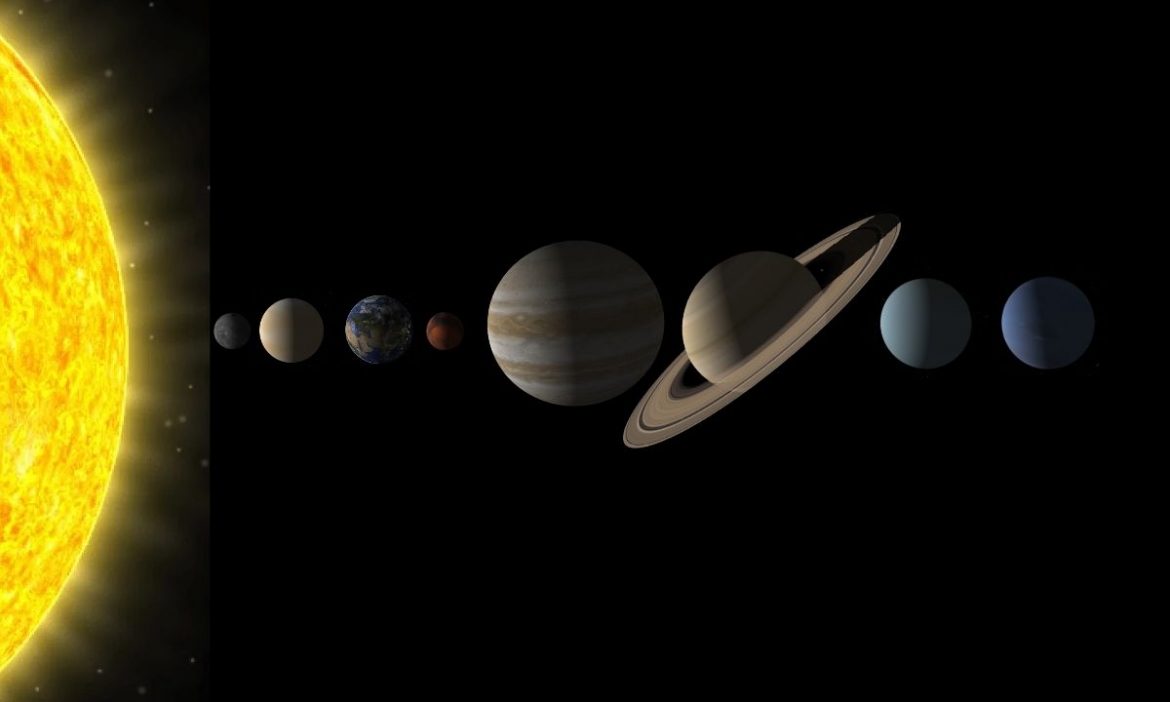Before we discover exoplanets, we used to think that other planetary systems are like the Solar System. However, we didn’t find many planetary systems that resemble us, even though we have already found thousands of exoplanets. So, why is the Solar System so unique? Let’s find out.
The Phenomenon
To talk about the Solar System’s uniqueness, mentioning the phenomena is crucial, right? The things that make the Solar System unusual are both something we have and something we don’t have. So, let’s get started quickly.
The Strange Things the Solar System Has
Some unique things exist in the Solar System, and the most notable one is the planets’ arrangement.
Surprisingly, the fact that all inner planets are rocky and all outer planets are gaseous makes the Solar System unique within our galaxy. What’s more, the rocky planets are tiny compared to gas giant planets, and there should be something in between.
If you think of how massive Jupiter is compared to how tiny Mercury is, does it feel strange? In fact, the largest planet in the Solar System is thousands of times more massive than the smallest planet in our Solar System, and the ratio is possibly larger than most other planetary systems!
Things that the Solar System Doesn’t Have
The most things that make the Solar System unusual are what it doesn’t have, and we’re talking about common types of planets. Firstly, if you look at the sizes of the planets in the Solar System, you’ll notice a large gap between Earth and Neptune, and we discover a lot of super-Earths and sub-Neptunes, which are the planets in between! In fact, they account for at least 30.8% of all exoplanets found, which are one of the most common sizes for an exoplanet!
Furthermore, there aren’t any planets orbiting within the orbit of Mercury. A lot of planetary systems have planets orbiting very close to their stars. The orbital periods for those planets can be as short as a few days! Moreover, the planets in the Solar System are relatively separate from each other. In fact, the outermost of the 8 planets orbiting Kepler-90 is only about 1 astronomical unit from the Sun, meaning that it’s much more compact than the Solar System.

Image Credit: NASA/JPL Eyes, Canva
The Grand Tack Hypothesis
Now, after explaining all the phenomena, we have to know why. It turns out that the Solar System is meant to be that unique since its formation. That is due to the Grand Tack hypothesis, and it seemed to explain why the Solar System is unique.
At first, Jupiter was literally on its way to become a hot Jupiter. The gas giant started its formation 3.5 astronomical units from the Sun. It migrated slowly to 1.5 astronomical units from our star, which is the current location of the red planet. The migration is due to some particles slowly exchanging their angular momentum with Jupiter, causing the orbit to sink toward the Sun.
At that time, Jupiter’s gravity swept most materials in that location into its gravity well, causing Mars to be much smaller than what it supposed to be. This also kept the rocky planets small, preventing any super-Earths from forming.
Why didn’t Jupiter keep sinking toward the star until it becomes the closest planet? That’s because of Saturn, which is the second-largest planet in the Solar System. When Jupiter migrated to one point, the gases between Jupiter and Saturn cleared, and they start migrating backward, getting further away from the Sun. That also explains why the Solar System doesn’t have any hot Jupiters.
Conclusion
Today, we discussed the reason why the Solar System is unique and the trajectory of Jupiter that potentially caused it. As more exoplanets are discovered, will the Solar System seem to be even weirder or more normal? Let us know in the comments.
References and Credits
- Bill Retherford. (2018, January 31). Surprise — Our Solar System’s Not Like The Others. Retrieved April 11, 2021, from https://www.forbes.com/sites/billretherford/2018/01/31/surprise-our-solar-systems-not-like-the-others/
- (2020, April 8). The Weirdest Solar System We’ve Found So Far? You May Be In It. Retrieved April 11, 2021, from https://exoplanets.nasa.gov/news/1633/the-weirdest-solar-system-weve-found-so-far-you-may-be-in-it/
- Brian Koberlein. (2015, March 31). How special is the Solar System? Retrieved April 11, 2021, from https://medium.com/starts-with-a-bang/how-special-is-the-solar-system-bc6ecdb5a1ab
- Lauren Weiss. (2018, October 16). Our Solar System Is Even Stranger Than We Thought. Retrieved April 11, 2021, from https://blogs.scientificamerican.com/observations/our-solar-system-is-even-stranger-than-we-thought/
- (2020, June 5). Gravity Assist: Is Our Solar System Weird? With Shawn Domagal-Goldman. Retrieved April 11, 2021, from https://www.nasa.gov/mediacast/gravity-assist-is-our-solar-system-weird-with-shawn-domagal-goldman
- (n.d.). Exoplanet Exploration: Planets Beyond our Solar System. Retrieved April 12, 2021, from https://exoplanets.nasa.gov/
- (2011, August 19). Jupiter’s “Grand Tack” Reshaped the Solar System. Retrieved April 13, 2021, from https://astrobiology.nasa.gov/news/jupiters-grand-tack-reshaped-the-solar-system/
- (n.d.). Kepler-90h. Retrieved April 13, 2021, from https://exoplanets.nasa.gov/exoplanet-catalog/6129/kepler-90h/

